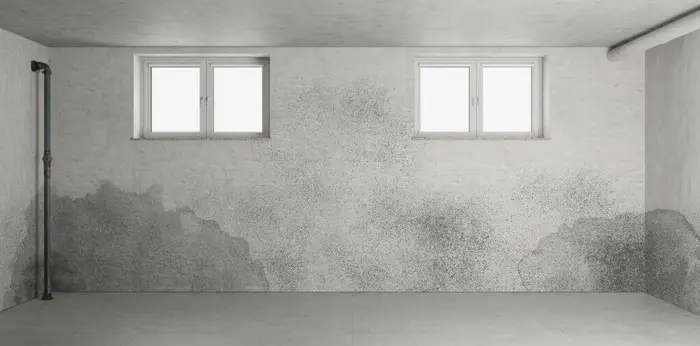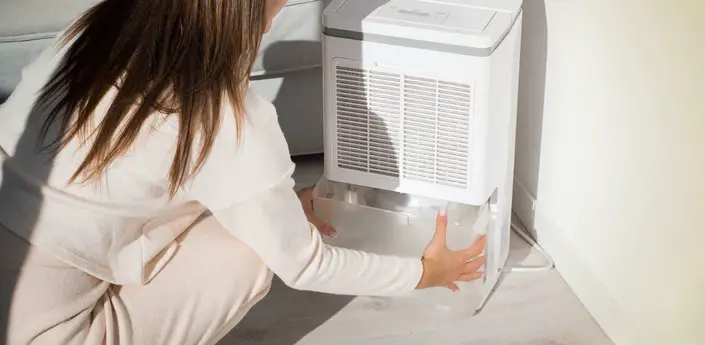When it comes to creating a healthy living environment, basement air quality often gets overlooked. However, neglecting the air quality in your basement can lead to various health issues and discomfort. In this comprehensive guide, we will explore effective strategies and practical tips to enhance the air quality in your basement, ensuring a safe and breathable space for you and your family.

Identify Potential Air Quality Issues in the Basement
Common Causes of Poor Basement Air Quality
Understanding the root causes of poor air quality in basements is crucial for implementing the right solutions. Moisture, mold, radon gas, and inadequate ventilation are often the culprits. Excessive moisture can seep into the basement, providing a breeding ground for mold, while radon gas, a naturally occurring radioactive gas, can infiltrate through the foundation. Furthermore, the lack of proper ventilation exacerbates these issues, trapping pollutants and reducing fresh air circulation.
Conduct a Basement Air Quality Assessment
To begin improving basement air quality, it’s important to conduct a thorough assessment. Start by visually inspecting the area, looking for signs of moisture, mold, or musty odors. If necessary, consider professional testing to identify specific pollutants, such as mold spores or radon gas levels. Armed with this knowledge, you can take targeted steps towards cleaner air.
Effective Strategies for Improving Basement Air Quality
Address Moisture and Humidity Issues
Excessive moisture and high humidity are primary culprits behind poor air quality in basements. Installing a dehumidifier can help control humidity levels and prevent mold growth. Additionally, sealing cracks and leaks will further reduce moisture infiltration, contributing to a drier and healthier basement environment. If you’ve a wet carpet, read more a very useful guide about how to dry your wet carpet: easy and fast ways.

Prevent and Eliminate Mold Growth
Mold growth not only compromises air quality but also poses serious health risks. Regular cleaning, ensuring proper ventilation, and using mold-resistant materials can help prevent mold from taking hold. If you discover existing mold, it’s crucial to address it promptly by following appropriate cleaning procedures to minimize exposure and eliminate the source.
Improve Ventilation
Adequate ventilation plays a pivotal role in maintaining good basement air quality. Poorly ventilated basements tend to trap pollutants and stagnant air. Installing exhaust fans, opening windows when weather permits, or using a mechanical ventilation system can effectively enhance airflow and minimize the accumulation of airborne pollutants.
Filter the Air
Air purifiers and HVAC filters are valuable tools in improving basement air quality. These devices help remove airborne particles such as dust, pollen, and mold spores. Consider using high-efficiency particulate air (HEPA) filters or activated carbon filters to capture a wide range of pollutants effectively. Regularly cleaning or replacing filters is essential to maintain their effectiveness.
Maintenance and Additional Considerations
Regular Cleaning and Upkeep
Regular cleaning of your basement is essential for reducing dust, allergens, and other pollutants. Vacuuming carpets, wiping surfaces, and keeping clutter to a minimum will significantly improve air quality. Pay special attention to areas prone to moisture or mold growth, ensuring they remain dry and well-maintained.
Consider Flooring and Furniture Materials
The materials used in your basement can have a direct impact on air quality. Opt for flooring materials that are low in volatile organic compounds (VOCs) to minimize the release of harmful chemicals. Choose furniture made from allergen-resistant materials to reduce the accumulation of dust and other allergens, promoting cleaner air.
Monitor and Maintain Systems
Regular inspection and maintenance of your basement systems are paramount. Schedule routine checks of your HVAC system, dehumidifier, and radon mitigation system, if installed. Clean or replace filters as recommended, ensuring optimal performance and efficient removal of pollutants. By taking care of these systems, you create an environment conducive to better air quality.
Conclusion
Congratulations on embarking on this transformative journey towards superior basement air quality. By addressing moisture, mold, ventilation, and filtration, you have armed yourself with the knowledge and tools necessary to breathe easy and live healthier. Remember, regular assessments and maintenance are key to sustaining these improvements. Embrace the power of clean air, for it is the foundation upon which a healthy home is built.


